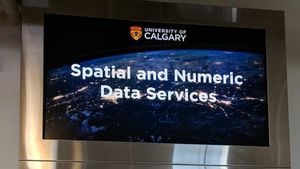Network services have accustomed us to move from the personal to the global. Think of iTunes. I have my own local library on my PC which I can synchronize with mobile devices. It is also tightly integrated with the global network iTunes. And the MiniStore uses aggregate buying patterns to make recommendations to me based on what I have in my ‘library’.
Variations of this pattern are repeated everywhere. Flixster allows me to rate movies, and relates those to those of my ‘friends’ and to the aggregate global network level (Flixster drives the Movies application in Facebook). del.icio.us, LibraryThing, Flickr: I can move from my own collection to a global resource in various ways, often assisted by navigational features based on shared attributes across collections and items.
Of course, the dynamic is different in different places. In LibraryThing, for example, the ‘global’ data level is made up from aggregate personal collections, and central to the service is the idea that connections between our collections are important connections between us. In iTunes, the ‘global’ data level is already provided as an indication of available purchases, and I do not get to see other people’s collections. Although, as already suggested, I benefit from ‘hints’ based on aggregate buying decisions. In this way, the balance between ‘personal’ and ‘social’ value varies across services.
At the same time, we have seen a related interest in all sorts of ways in creating personal collections which may draw materials from many services. Look at Zotero or the work of the SImile project for instance. These personal collections may or may not connect up to global or shared data layers.
Whatever the context, and whether or not the service has a social orientation, the idea of traversing from the personal to the global is becoming an important characteristic of our web experience. Yet another thing for libraries to think about as they work towards reconfiguring services for the web environment …
Aside: I am reminded of Dan Chudnov’s suggestion that the professional mission of librarians is to help people build their own libraries.
Related entry:
Share
More from LorcanDempsey.net



